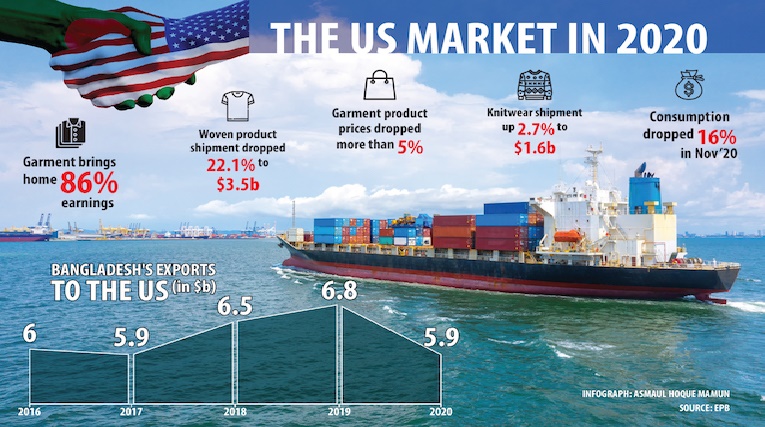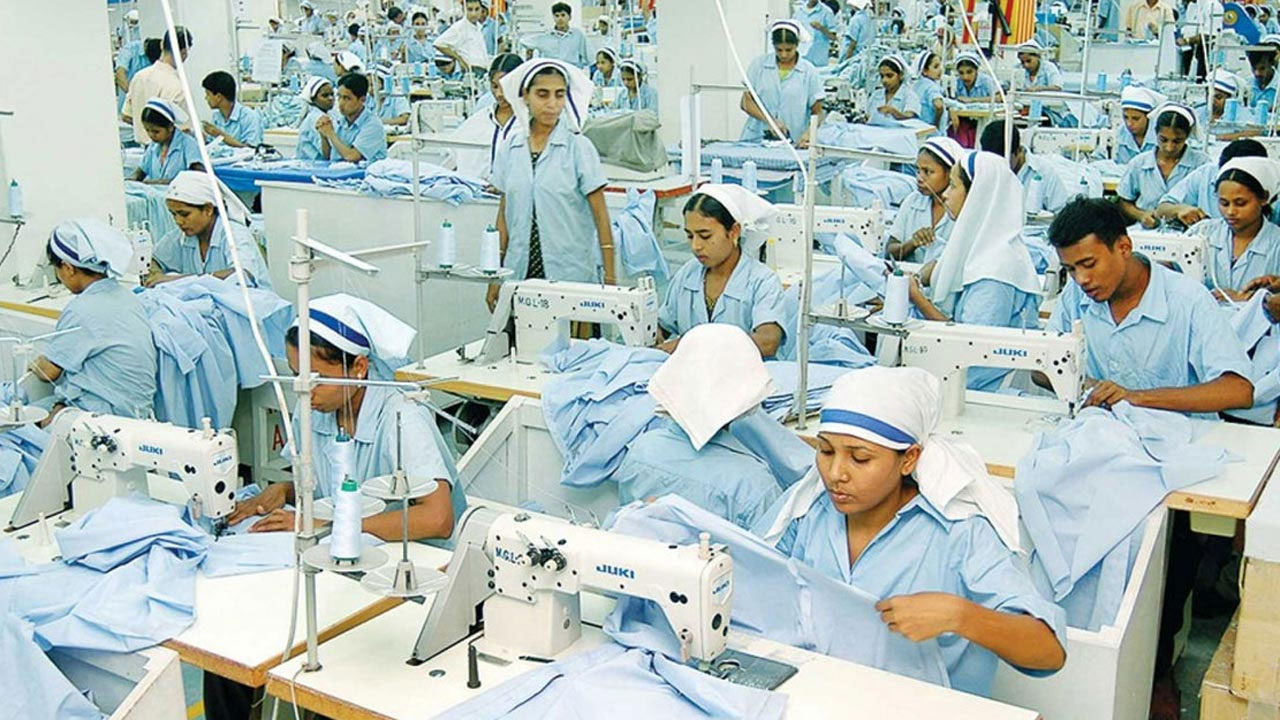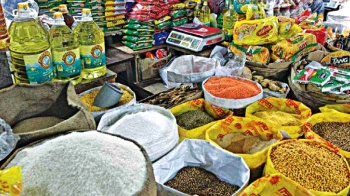Since the income of US citizens shrank and they cut down on expenses, the demand for clothing items as well as consumer goods fell
Shipments to the US, the single largest export destination for Bangladesh’s products, have tumbled about 12.6 per cent in 2020 as the world’s largest economy saw its sharpest contraction in decades in the second quarter.
Exports to the US brought home about $5.9 billion last year, of which garment fetched about $5.1 billion, down 15.8 per cent year-on-year, according to data from the Export Promotion Bureau.
The US economy shrank at a 32.9 per cent annual rate between April and June as the country grappled with lockdowns and spending cutbacks during the pandemic. It was the deepest decline since the government began keeping records in 1947 and three times more severe than the prior record of 10 per cent set in 1958.
In the third quarter, it grew at a record pace, fuelled by more than $3 trillion in pandemic relief. But it appears to have lost momentum as the year drew to an end amid raging new Covid-19 cases and dwindling fiscal stimulus, reports CNBC.
Since the income of US citizens shrank and they cut down on expenses, the demand for clothing items as well as consumer goods fell, said Abdus Salam Murshedy, managing director of Envoy Textile.
“This hit Bangladesh’s exports to the US.”
In the US, consumption had dropped 16 per cent in November, while the prices of products exported to the country declined more than 5 per cent, Murshedy said.
On top of that, the demand for woven products was less as people worked from home and they dressed casually, he added.
Bangladesh’s exports to the US market are driven by woven products, said Faruque Hassan, managing director of Giant Group, told Dhaka Tribune.
“But knitwear products performed well.”
Since people did not go to the office regularly or leave their homes much, the demand for formal wear like shirts and pants were low.
“As a result, our exports declined,” said Hassan, also a former senior vice-president of the BGMEA.
In addition, the production of woven products was hampered due to supply chain disruption during the first phase of covid. Bangladesh imports fabrics for woven products mostly from China, he added.
However, experts as well as the manufacturers also blamed the longer lead time and the sharp negative growth in woven products for the downtrend in exports to the US.
“Amid the pandemic, the lead time was very crucial for importers and brands as the supply chain was disrupted due to the pandemic. They preferred Vietnam due to their shorter lead time,” said Fazlee Shamim Ehsan, a director of the Bangladesh Knitwear Manufacturers and Exporter Association (BKMEA).
Vietnam has a deep seaport, so its exporters can easily import fabrics and other raw materials from China as well as ship goods to the US with a shorter lead time.
“They had the advantage of shorter lead time and made the best of it,” said Ehsan, also the owner of Fatullah Apparels.
In the first 10 months of 2020, Vietnam’s exports to the US declined 8.1 per cent and Bangladesh’s 11.7 per cent, according to data from the US Department of Commerce's Office of Textiles and Apparel (Otexa).
Higher dependency on single products is risky for sustaining the growth of exports, said Khondaker Golam Moazzem, research director of the Centre for Policy Dialogue.
“It is now clearer. So, the manufacturers should focus on products diversification as well as market diversification.”
For higher shipments to the US, Bangladesh has to come out from the traditional export items and attract foreign direct investment (FDI) in areas where there are opportunities for manufacturing value-added goods.
“On top of that, we should develop a strong backward linkage for the woven sector to reduce import dependency and to increase value addition,” he added.












